
ASL Summer Bucket List
It’s hard to believe that another school year has zipped by and summer break is already here! Cue the warm sunshine and exciting activities! We’d
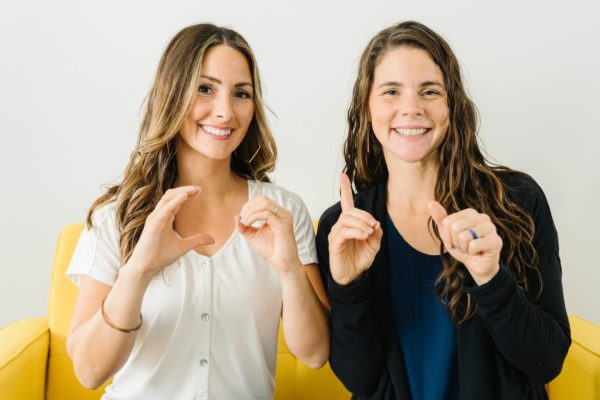
Telemarketer: “Hi, can I please speak to Dacia?” Us CODAs: “Oh sorry she can’t talk to you, she’s Deaf.” Telemarketer: “Oh my goodness, I’m so sorry for your loss.” Us: “She’s not dead, she’s Deaf!”
Welcome to a glimpse of our lives growing up as CODAs. If you are sitting there reading the title and wondering what CODA means, don’t worry you’re not alone! Not very many people outside of the Deaf community know what a CODA is either. A CODA is a child of deaf adults. By having Deaf parents, we (Danicia and Deidra) naturally fall into the CODA category.
Our hope is this blog post can spread a little more awareness and understanding of the beautiful world we grew up in. Many CODAs likely have similar experiences, however, the five things listed below give a little insight to our lives growing up. Enjoy!
We’ve always had an underlying love of music even when we were young, but it took on a new meaning as we got older. Before getting our own music system we listened to Disney Sing Along tapes on repeat. Under the Sea anyone? That was our jam.
In Danicia’s seventh grade year, it all changed. She got a boombox for her birthday, complete with working CD player, watch out world! We traded in our Disney songs for Weezer and Silverchair, and turned the volume WAY up. Our dad would often pop into our room during jam sessions and feel the speaker to make sure we weren’t listening too loudly. After that, we wised up and turned the bass down low so it wouldn’t reverberate the speakers as much!
In some cases music doesn’t have the same meaning to Deaf people as it does to those who are hearing. That being said, music can still influence and inspire everyone, regardless of one’s capability to hear. Our parents were excellent dancers and would often ballroom and swing dance their way through the kitchen, dancing to the music of their own hearts. Other times they followed along to the beat of vibrations from speakers.
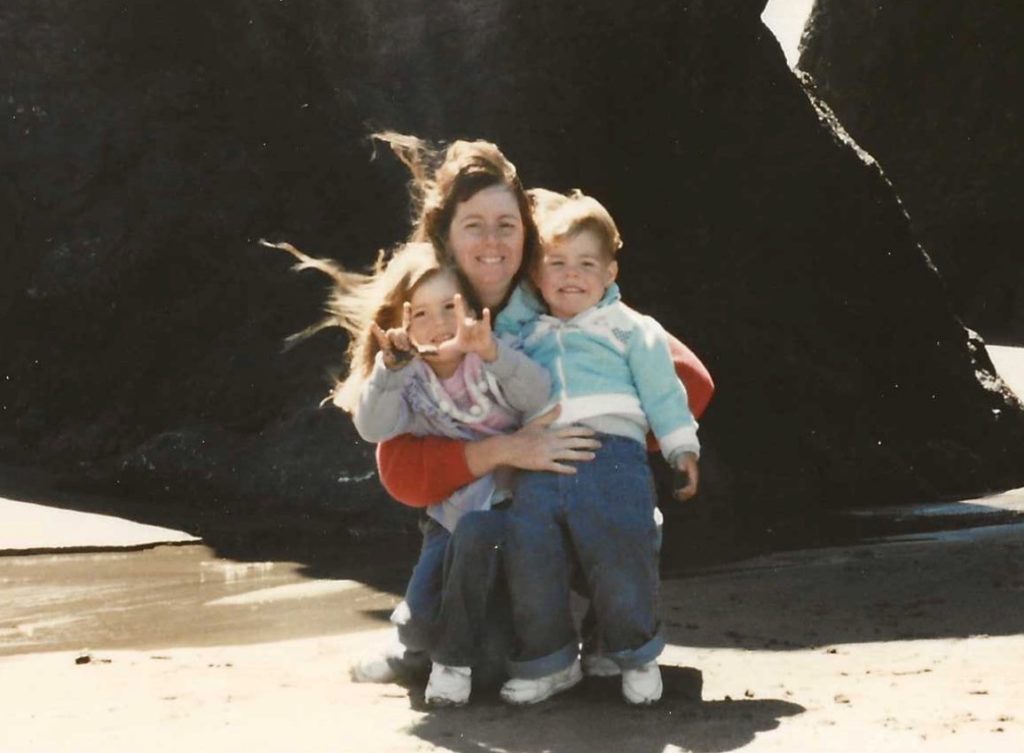
Imagine being 13 years old, hanging out at your friend’s house, when suddenly your friend’s parents say to you, “There is some kind of operator on the phone for you.” Embarrassing, right?
When I would answer, I hear the familiar, “This is California Relay Service, operator number —- with a phone call from Dacia (completely butchering the pronunciation of our mom’s name).” The same operator, who is a stranger to me, says, “Hi, this is mom. You were supposed to be home an hour ago, you need to come home, go ahead.” I awkwardly reply with, ” Come on mom! Can I stay here a little longer? Please? Go ahead.” Next, I pause to allow the operator to type to my mother. Then came the reply from the same stranger’s voice,” No, you need to come home now! Love you, go ahead.” To which I would answer, ” Ok, ok, I’ll come home. Love you too. Stop key.”
Once the conversation was over, I would typically be bombarded with questions about what in the world just transpired. Then, I would have to explain how I was talking to my mom through a relay service.
This scenario is something generally only a CODA would understand without much more of an explanation. Since you are probably wondering what was with all the “go aheads” in the conversation above, here is a breakdown.
Prior to video phones and internet based relay services, a person who is Deaf or hard of hearing would type their conversation to a relay operator using a device called a TTY, which resembled a digital typewriter. The relay operator would then voice for the Deaf or hard of hearing person. In order to avoid typing over each other, etiquette was developed. To signal that the other person could begin their turn typing, the letters GA were keyed, which means “Go Ahead.” To end a conversation the letters SK were typed which means “Stop Key”.
That’s how hearing people have conversations on the phone right?
Spoiler alert….the same thing still happens today!
Our dad was a strong proponent of advocating for himself when communicating with others. He would carry around a small notepad and pen and often have conversations via writing back and forth. Growing up, both our parents would request professional sign language interpreters when appropriate.
However, there are too many situations to count where CODAs naturally become the default interpreter. Doctor visits when professional interpreters aren’t available, group settings where writing back and forth isn’t feasible, in person communication with teachers, church sermons, ordering food in the drive-through etc.
At large family gatherings, we are always the default interpreter. It is almost impossible to provide equal access when there tends to be so much going on. It can be exhausting for us to keep up with conversations.
But if we chose not to interpret, our parents would have felt that much more isolated and left out. This is why we are so passionate that families learn to sign for their deaf loved ones!
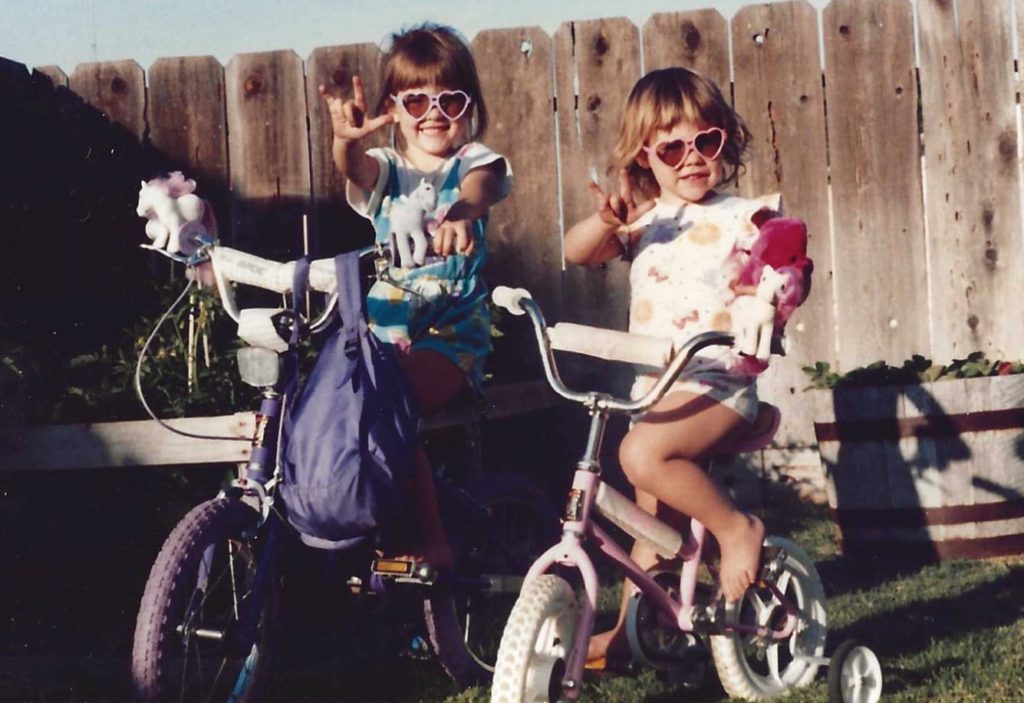
When we had our friends over and the TV was on they would sometimes comment about how the closed captions were distracting or would block part of the show. Are you kidding me? Captions are life!
Or when you invite your boyfriend over to watch a movie with the family, only for him to completely RUIN it with his constant sarcastic comments about the captions especially when it came to describing the background noises or audio cues. For example, [woman laughs uncontrollably], [door creaking], or [suspenseful music playing]. You can only imagine how annoying it would be when your boyfriend would read aloud the descriptions instead of just watching the dang film!
Closed captions provide equal access to those who are deaf or hard of hearing and we hope you’ll give them a chance. You never know, you may get to the point where you can’t watch anything without them on either!
Are your mom and dad mad? Time and time again, hearing people would often ask us if our Deaf parents were angry about something when they were just having an everyday conversation to each other in ASL. Keep in mind that Deaf culture has some very distinct differences than hearing culture.
We will dive into Deaf culture in another post, but know that it is very common for hearing people to misread facial expressions which are an essential part of ASL.
Other instances that our hearing friends would misunderstand our parents were the times when they would be cooking in the kitchen or when it was time to put away the dishes. Being that they can’t hear, Deaf people tend to be unaware of the noise that objects make.
So when my parents would be getting out pots and pans to start cooking, the racket in the kitchen would be associated with them being upset when really they were just minding their own business!
And don’t get us started on the foot stomping or slamming the table to get each other’s attention. Hearing people tend to lose their minds!
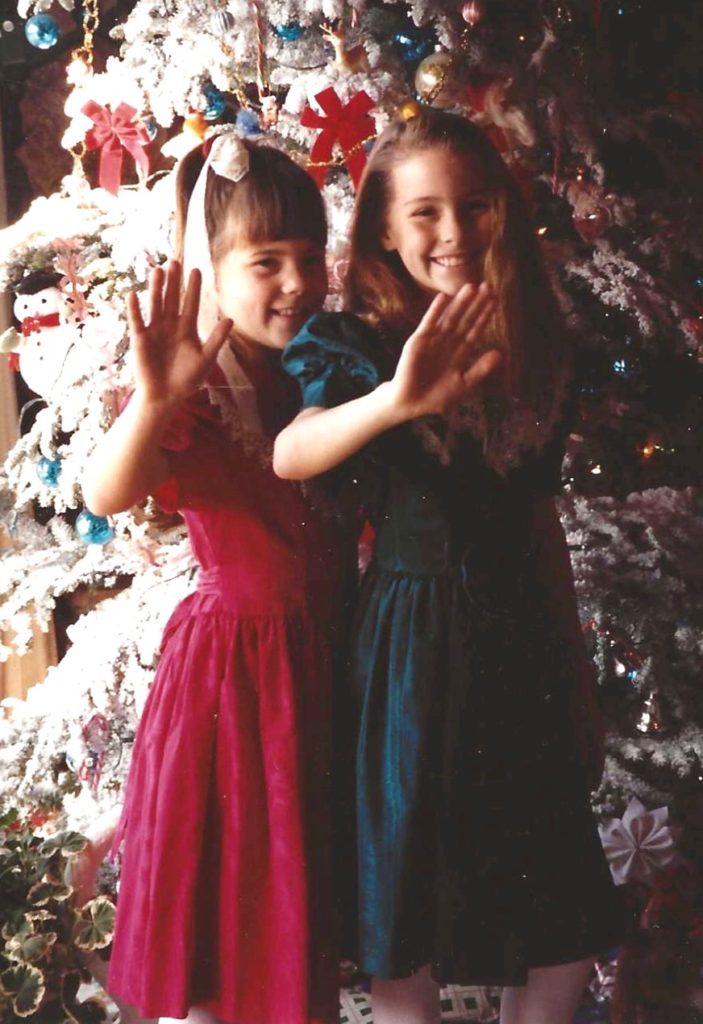
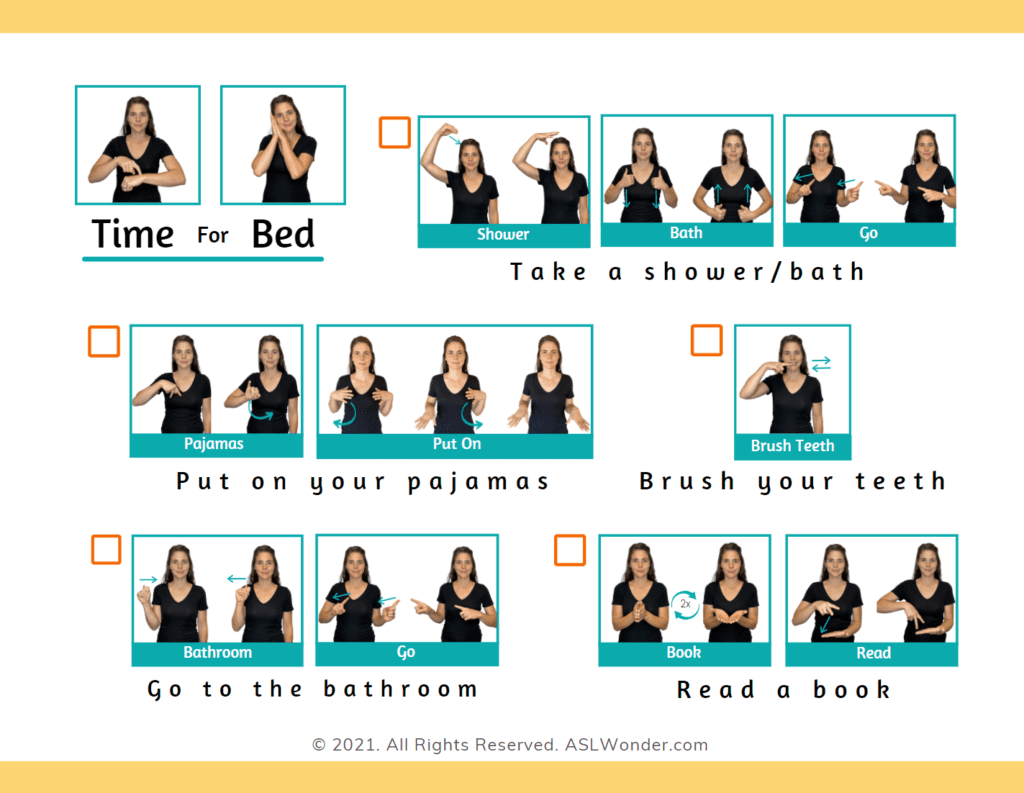
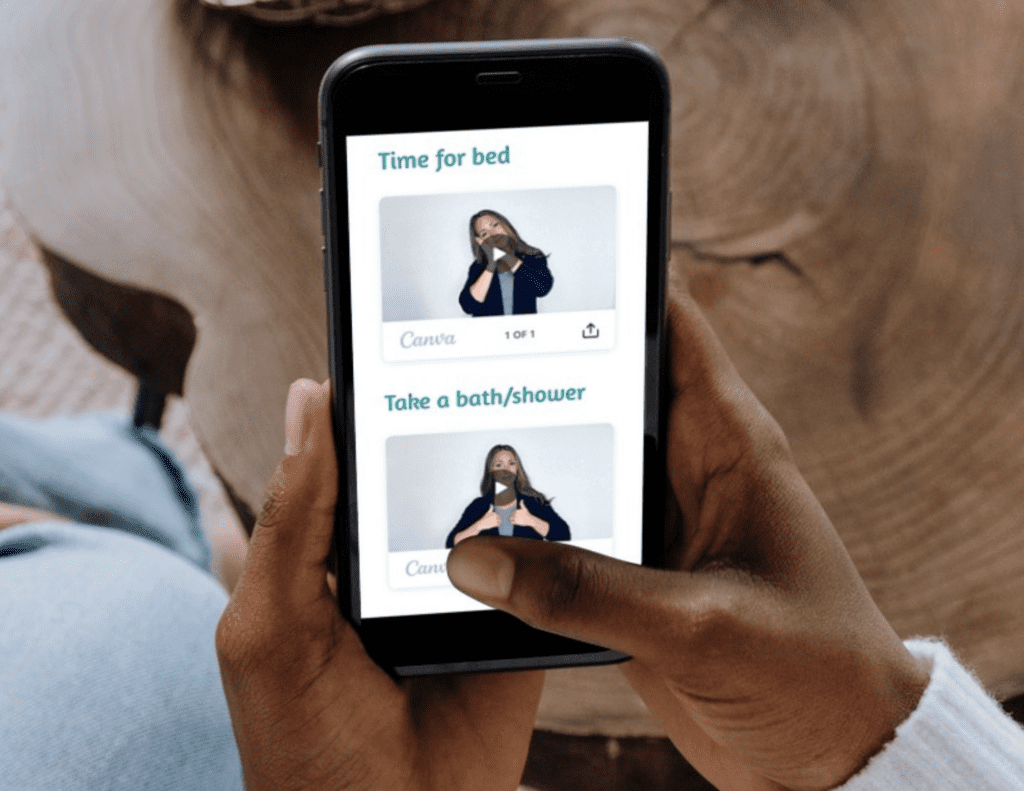
Thank you for joining our email list! We can’t wait to guide you and your family along your ASL journey. We promise to keep your email address private.

It’s hard to believe that another school year has zipped by and summer break is already here! Cue the warm sunshine and exciting activities! We’d
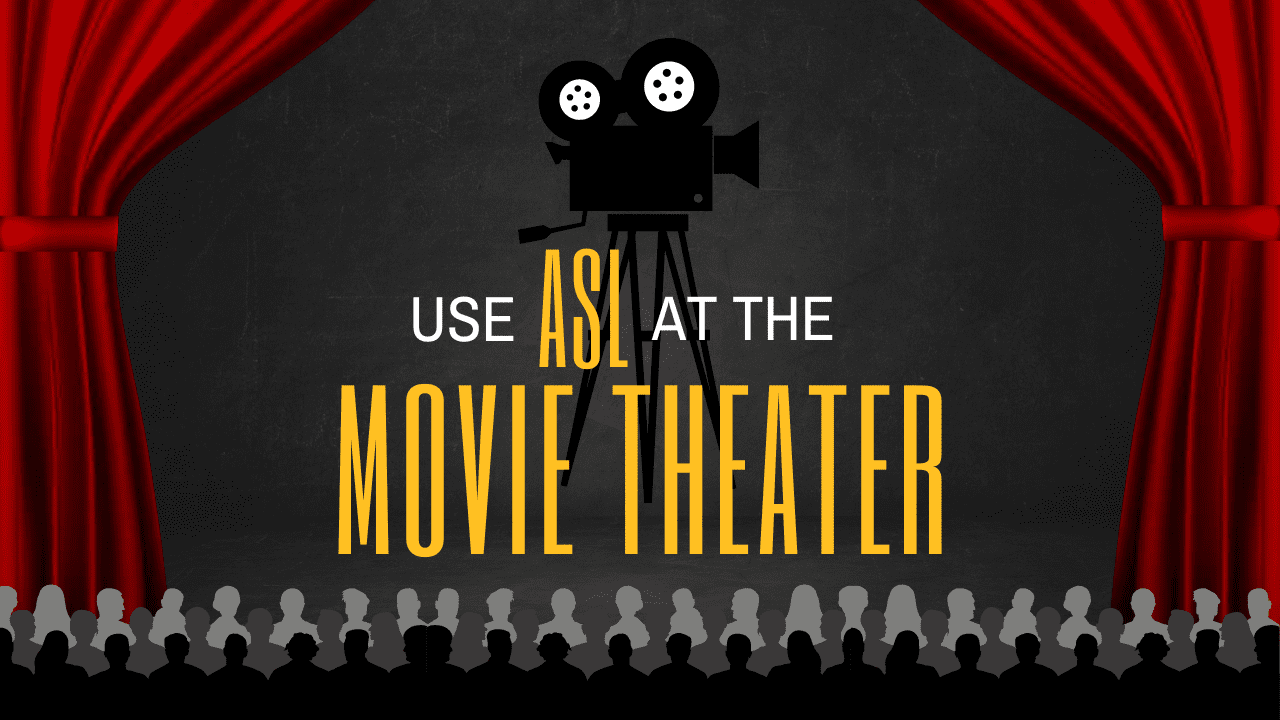
Three Common Captioning Options & ASL Movie Theater Related Signs Going to the movie theaters is a fun outing that many families enjoy, but how
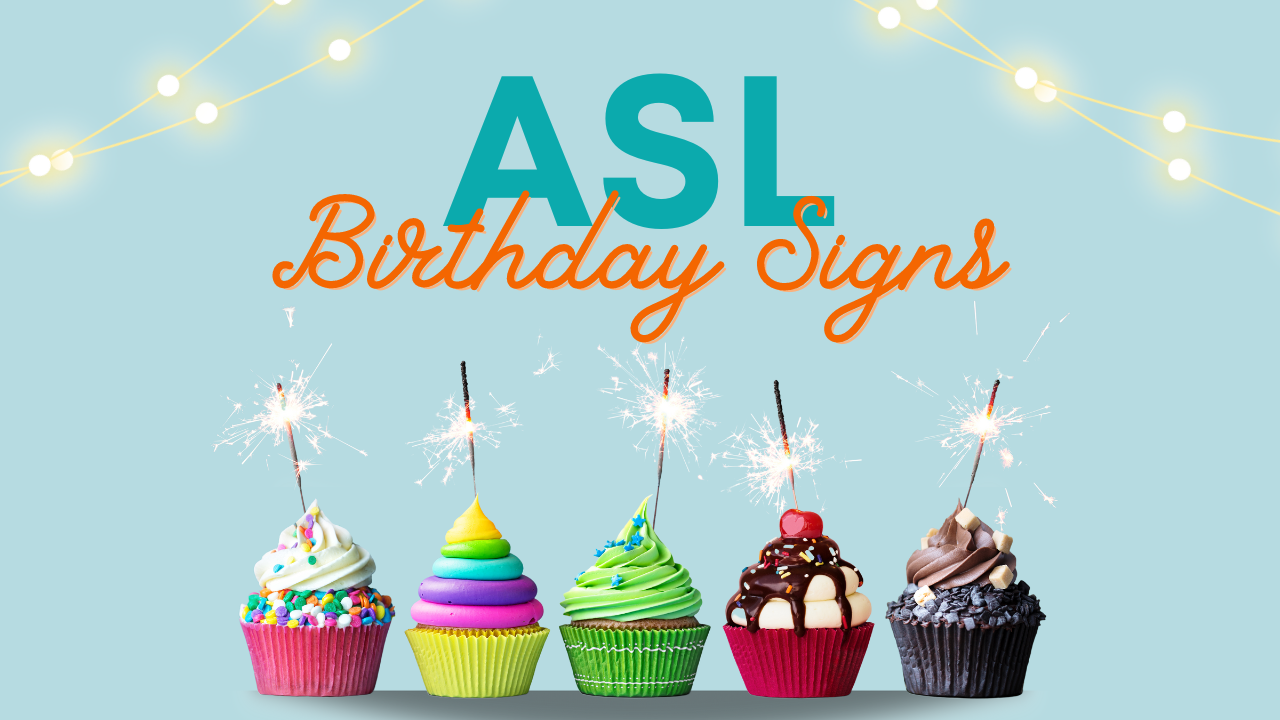
Every year without fail our birthdays roll around, and even though it means we’re one year older and have a few more wrinkles, we still